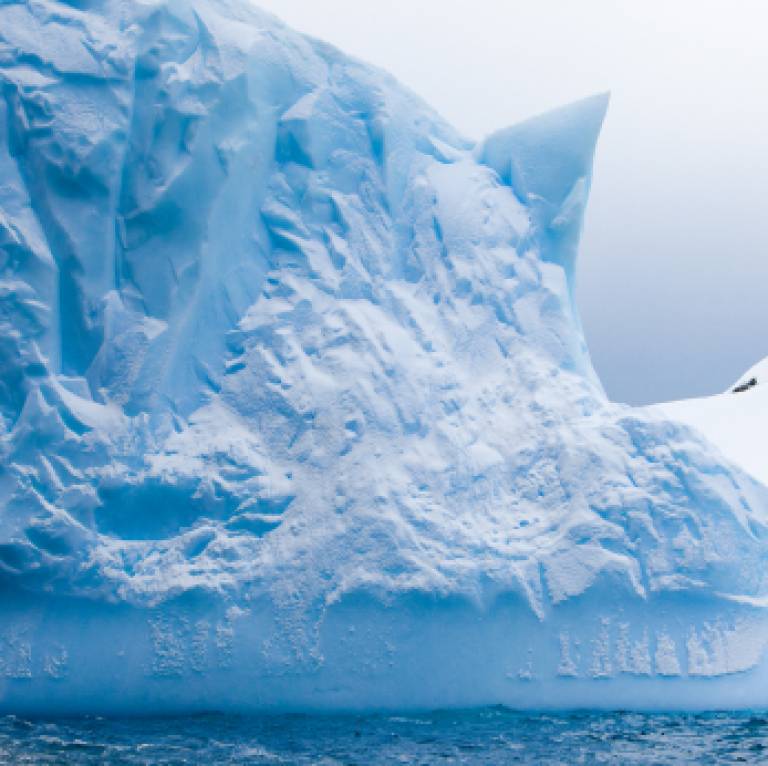Next ice age delayed by global warming
10 January 2012
Without human carbon dioxide emissions the next ice age would be imminent, according to a Nature Geoscience study led by a UCL scientist.

In the paper, scientists led by Professor Chronis Tzedakis (UCL Geography) have been able to 'fingerprint' the timing of past ice age activations, or 'glacial inceptions' by identifying the onset of abrupt temperature changes in Greenland and Antarctica.
By applying this 'fingerprint' method to a nearly identical interglacial period with similar levels of summer solar radiation to our own current period, some 780 thousand years ago, the researchers have been able to determine that glacial inception would indeed be expected to occur sometime within the next 1500 years, a blink of an eye in the context of the Earth's lifespan. But due to high CO2 levels, and associated radiative forcing of global temperatures, it is expected to be delayed.
Professor Tzedakis said: "Uncertainty over an imminent hypothetical ice age arises from the unusually weak minimum in summer solar radiation, which characterises the present situation. It has thus been proposed that times of weak solar radiation force interglacials to last 20 thousand years or more."
"Uncertainty over an imminent hypothetical ice age arises from the unusually weak minimum in summer solar radiation, which characterises the present situation."
Professor Chronis Tzedakis
A reduction in summer solar radiation energy, or insolation, is the primary trigger for the start of a new ice age. The team found that the onset of the ice age around 780 thousand years ago occurred when the reduction in summer solar radiation was very weak (like today), but CO2 levels were lower than pre-industrial concentrations, thereby offsetting the effect of the weak solar radiation forcing.
CO2 concentrations are another factor that impacts on the start of ice ages. With the rise of human civilisation, agriculture and the industrial revolution, CO2 levels have increased over the past few thousand years, preventing the onset of the next ice age.
Professor Tzedakis added: "While verification of an imminent glacial inception will elude us at current CO2 concentrations, it is important to reiterate that the current solar radiation forcing and lack of new ice growth mean that natural variability will not be moderating the effects of anthropogenically-induced global warming."
Links
Chronis Tzedakis
UCL Department of Geography
Research in Nature Geoscience
BBC News Online coverage
New York Times coverage
 Close
Close

